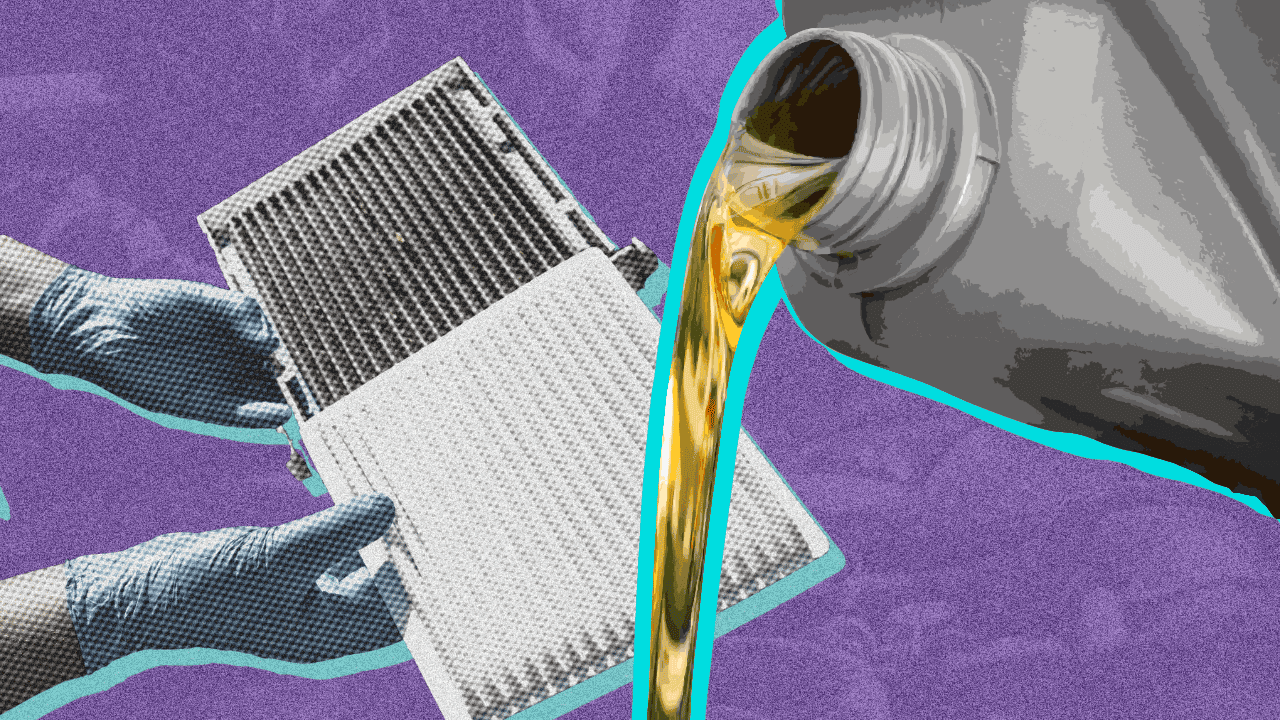How Often Should You Change Oil, Filters, and Fluids?

Regular maintenance is key to keeping your car running efficiently and safely for years to come. However, many Filipino car owners, especially first-time buyers, tend to underestimate the importance of scheduled oil and fluid changes.
Below is a guide to help you determine what and when you need to make replacements to ensure not only your car’s upkeep but also your safety on the road.
1. Engine Oil ��️
Referred to as the “lifeblood” of your vehicle, engine oil lubricates engine components, reduces friction, prevents overheating, and carries away dirt and metal particles.
But as oil naturally degrades over time due to heat, moisture, and contaminants from combustion, it becomes less effective at protecting your engine.
Recommended change interval:
- Every 5,000 to 10,000 kilometers or every 3 to 6 months, whichever comes first.
- Older cars or vehicles that regularly drive in heavy traffic (such as when driving through EDSA or C5) should change oil more often since idling generates heat and stress.
- Newer vehicles that use synthetic oil may last longer between changes.
Pro tip: Check your oil dipstick monthly. If it’s dark, gritty, or below the minimum line, it’s time for a change.
2. Oil Filter ��
Your oil filter works together with your engine oil. It removes impurities such as dirt, rust, and sludge so they don’t recirculate and damage the engine. However, a clogged filter can cause pressure buildup and reduced oil flow.
Recommended change interval:
- Replace the oil filter every time you change your oil.
- Some mechanics recommend changing it sooner if you frequently drive short distances, as this causes quicker buildup of contaminants.
Why it matters: Clean oil and a fresh filter improve engine efficiency, fuel economy, and overall longevity.
3. Air Filter ��
Your air filter keeps dust, debris, and pollutants from entering your engine’s combustion chamber. When it gets dirty, your engine must work harder to draw air, reducing power and fuel efficiency.
Recommended change interval:
- Every 15,000 to 20,000 kilometers, or more often in dusty environments.
- If you regularly drive around Metro Manila or provincial areas with unpaved roads, check it at least every 10,000 km.
Signs your air filter needs replacing:
Pro tip: If you notice reduced acceleration, black smoke from the exhaust, or unusual engine sounds or stalling, it’s definitely time for a filter change!
4. Fuel Filter ⛽️
The fuel filter ensures only clean fuel reaches your engine. Contaminated fuel can cause sputtering, poor acceleration, or worse, complete engine failure.
Recommended change interval:
- Every 30,000 to 40,000 kilometers for gasoline engines
- Every 20,000 kilometers for diesel engines (diesel fuel carries more impurities)
Pro tip: If your car struggles to start, or you notice reduced engine performance, your fuel filter might be due for replacement.
5. Transmission Fluid ⚙️
Transmission fluid lubricates gears, cools internal parts, and ensures smooth shifting. When it breaks down, you might notice delayed gear shifts, grinding noises, or jerky acceleration.
Recommended change interval:
- Every 40,000 to 60,000 kilometers for automatic transmissions
- Every 30,000 kilometers for manual transmissions
Pro tip: Check your transmission fluid color—it should be bright red or pink. You’ll know it’s overdue for replacement if it turns brown or smells burnt!
6. Brake Fluid ��
Your brake fluid is essential for transmitting pressure from your pedal to your brakes. However, it absorbs moisture over time, reducing effectiveness and increasing the risk of brake failure.
Recommended change interval:
- Every 2 years, or whenever you notice a soft or spongy brake pedal.
Why it matters: Old or contaminated brake fluid can compromise your stopping power—never skip this one for your safety, and the safety of others on the road with you.
7. Coolant ❄️
Coolant prevents your engine from overheating and protects against corrosion. It is also essential in maintaining optimal temperature during long drives and traffic.
Recommended change interval:
- Every 40,000 to 60,000 kilometers or every 2 years.
Pro tip: If your temperature gauge frequently rises or you notice leaks under the car, have your coolant checked immediately. Also make sure to top up with the correct type of coolant!
8. Power Steering Fluid ��
Power steering fluid keeps steering responsive and smooth. When it’s low or old, you’ll notice stiffness, whining noises, or rough steering.
Recommended change interval:
- Every 2 years or if steering feels heavy.
Pro tip: Look for leaks under the car—power steering fluid is typically red or amber.
Maintaining your car’s oil, filters, and fluids is one of the most cost-effective ways to protect your vehicle—especially for used cars. For car owners, it prevents major breakdowns. For car dealers, it builds buyer trust and increases resale value. But, all these are more than just about saving and trust. It is about being a responsible driver—ensuring both your own’s safety and those on the road with you.


